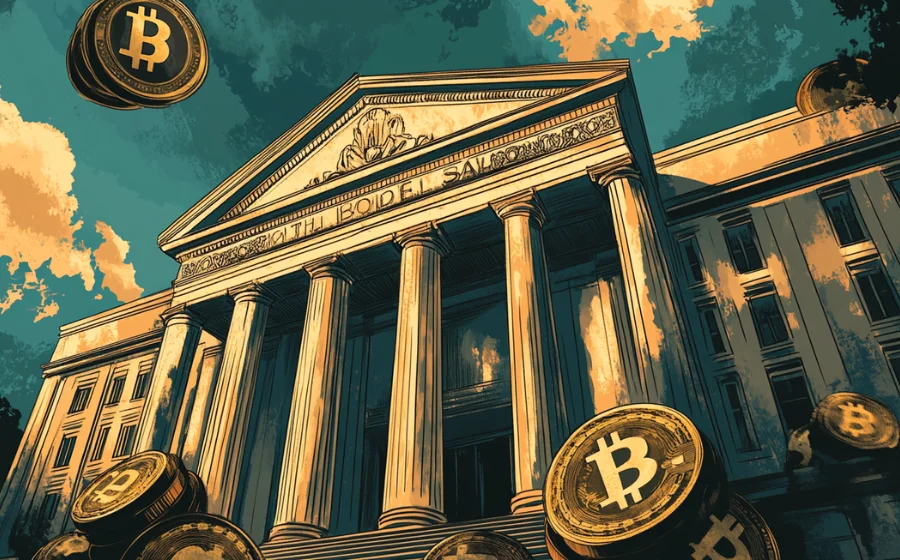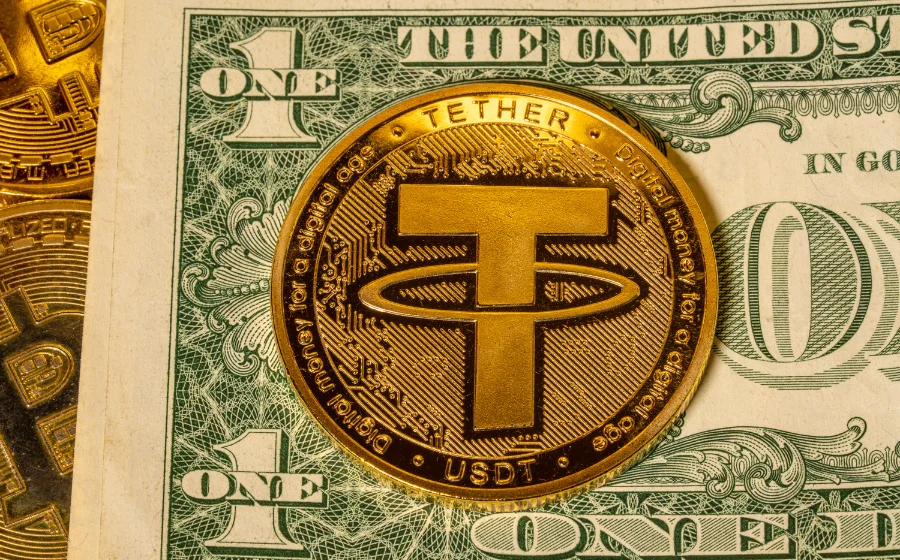
KEYTAKEAWAYS
- The SEC regulates securities markets and enforces transparency, fraud prevention, and investor protection, including oversight of crypto assets deemed securities.
- New Chair Paul Atkins signals a friendlier stance on crypto, launching a dedicated task force and dialing back prior enforcement-heavy approaches.
- Ongoing industry debates center on defining crypto as securities vs. commodities, with legislation and CFTC coordination critical to regulatory clarity.

CONTENT
The SEC is the top U.S. market regulator. It oversees securities and crypto assets considered “securities,” and is now shifting toward clearer rules under new crypto-friendly Chair Paul Atkins.
WHAT IS THE SEC?
The SEC, or the U.S. Securities and Exchange Commission, is an independent federal agency responsible for regulating securities markets, protecting investors, and ensuring fair and efficient market practices.
Any company seeking to raise capital from the U.S. public market or provide investment-related services—such as brokerages or asset managers—must register with the SEC. This is a key mechanism for transparency and investor protection in the financial system.
📌 Why Was the SEC Created?
The SEC was born out of the aftermath of the 1929 Wall Street Crash, one of the worst economic downturns in history. Rampant fraud and market manipulation had eroded public trust. To restore integrity and investor confidence, the U.S. government passed two landmark pieces of legislation:
📜 The Securities Act of 1933
This act requires companies to provide full and truthful disclosure when offering securities to the public—aiming to give investors the facts they need to make informed decisions. President Roosevelt called it the “truth in securities” law.
📜 The Securities Exchange Act of 1934
This act governs secondary market trading and created the SEC itself. It also set rules for stock exchanges, brokers, and dealers, institutionalizing the foundation of U.S. capital markets.
📌 Key Responsibilities of the SEC
As the primary securities regulator in the U.S., the SEC has wide-reaching responsibilities, including:
- Ensuring fair, orderly, and efficient markets
- Enforcing accurate financial disclosures from public companies
- Combating insider trading, accounting fraud, and market manipulation
- Overseeing financial intermediaries like exchanges and auditors
- Promoting regulatory innovation and adapting to new asset classes
- Conducting market surveillance and responding to systemic risks
🔍 Who Runs the SEC?
The SEC is led by five commissioners, appointed by the President and confirmed by the Senate. One is designated as Chair. To prevent political bias, no more than three commissioners may belong to the same political party. Each commissioner serves a five-year term, with a possible 18-month extension if a successor hasn’t been appointed.
🪙 Why Does the SEC Matter for Crypto?
As the crypto industry grows, the SEC plays a crucial role in shaping how digital assets are classified, regulated, and offered to U.S. investors. The commission’s stance on whether a token is a “security” determines whether projects must register, provide disclosures, or face enforcement.
Recent actions against exchanges, DeFi platforms, and token issuers show how the SEC’s interpretations can dramatically impact the crypto ecosystem. Many other countries also look to the SEC as a global regulatory benchmark when drafting their own crypto laws.
>>> More to read: New SEC Era | What Paul Atkins’ Leadership Could Mean for Crypto
HOW DOES THE SEC OPERATE?
According to the official website of the U.S. Securities and Exchange Commission (SEC), the agency is structured into 6 primary divisions, each responsible for a core area of market oversight and regulation:
✅ 1 .Division of Corporation Finance
Oversees disclosures made by public companies to ensure transparency and compliance with securities laws.
✅ 2. Division of Examinations
Conducts inspections of regulated entities such as broker-dealers, investment advisers, and other market participants.
✅ 3. Division of Economic and Risk Analysis
Provides economic and data-driven support for rulemaking, enforcement, and policy development.
✅ 4. Division of Investment Management
Supervises investment companies (like mutual funds) and investment advisers to protect retail investors.
✅ 5. Division of Enforcement
Leads investigations and civil enforcement actions against individuals or firms suspected of violating securities laws.
✅ 6. Division of Trading and Markets
Regulates the major securities market participants, such as stock exchanges, clearing agencies, and broker-dealers.
📌 Additional Offices Under the SEC
Beneath these six divisions, the SEC has also established 26 specialized offices to handle targeted responsibilities. These include:
- The Office of Mergers and Acquisitions
- The Office of Investor Education and Advocacy
- The Office of International Affairs
- The Office of the Whistleblower
- And more
These offices support the Commission’s efforts in investor protection, public education, international collaboration, and strategic enforcement.
📌 Civil and Criminal Enforcement Powers
The SEC has the authority to initiate civil lawsuits against individuals or entities that violate U.S. securities laws. In cases involving criminal conduct, it may coordinate with the U.S. Department of Justice (DOJ) to pursue criminal charges.
Its two main categories of enforcement actions are:
- Injunctions – Court orders to halt illegal activities. Violators of these orders may face fines or imprisonment.
- Civil Penalties and Disgorgement – The SEC can impose fines or require wrongdoers to return ill-gotten gains. It can also seek court approval to bar individuals from serving as corporate officers or directors, or even revoke a company’s public registration.
📌 Whistleblower Incentive Program
The SEC operates a Whistleblower Program that provides monetary rewards to individuals who help uncover financial fraud. In September 2014, a whistleblower living overseas was awarded over $30 million—one of the largest payouts in the program’s history.
This initiative underscores the SEC’s commitment to market integrity and its reliance on insider information to combat fraud effectively.
>>> More to read: SUI Takes the Spotlight in 2025’s Crypto Comeback
DOES THE SEC REGULATE CRYPTO?
Yes, the SEC (U.S. Securities and Exchange Commission) does regulate certain cryptocurrencies, but the key question is whether a given digital asset qualifies as a “security” under U.S. law.
📌 Why Does the SEC Get Involved with Crypto?
Under the U.S. securities laws, the SEC has jurisdiction over all securities-related activities. If a crypto asset is deemed a security, then its issuance, sale, marketing, and listing must comply with SEC regulations—this includes registration, public disclosures, and investor protections.
🔍 Howey Test: The Legal Standard
The SEC uses the Howey Test to determine whether an asset is a security. According to this legal framework, an investment is likely a security if it meets all four criteria:
- There is an investment of money
- The investment is in a common enterprise
- There is an expectation of profit
- The profit comes primarily from the efforts of others
Many ICOs and token projects that promise future returns—especially those marketed to U.S. investors—are considered securities under this test.
✅ Real-World Enforcement by the SEC
The SEC has already taken several high-profile actions against crypto firms:
- Ripple (XRP) Lawsuit: The SEC accused Ripple of selling XRP as an unregistered security.
- Coinbase and Binance.US Investigations: These exchanges were charged with listing unregistered securities.
- Crackdowns on Fraudulent ICOs: Multiple token sales were shut down or fined due to non-compliance or fraud.
These actions have stirred major debates in the industry over the limits of the SEC’s reach.
🧭 Industry Friction and Ongoing Debate
- The SEC maintains that most crypto tokens are securities and should be regulated accordingly.
- Many industry leaders and lawmakers argue that crypto assets form a new category and should be overseen by the CFTC or a newly created digital asset regulator.
There is growing demand for clear, consistent legislation to define what counts as a security vs. a commodity in the digital era.
🇺🇸 NEW CHAIR PAUL ATKINS: A CRYPTO-FRIENDLY TURN
On April, 2025, Paul Atkins was sworn in as the new SEC Chair. A former Commissioner (2002–2008), Atkins is widely seen as pro-innovation and pro-free markets, making his appointment a positive signal for the crypto industry.
🔄 Shift in Policy: From Crackdowns to Clear Rules
Under previous Chair Gary Gensler, the SEC took an aggressive enforcement-first stance, viewing most crypto tokens as unregistered securities.
In contrast, Paul Atkins has already initiated a significant policy pivot:
- Crypto Asset Task Force Launched: Led by Commissioner Hester Peirce to draft a long-term regulatory framework for digital assets.
- Rollback of Enforcement Actions: Partial investigations into Coinbase, Gemini, and others have been closed or paused.
- Push for Clarity Over Conflict: Atkins emphasizes building “a rules-based, innovation-friendly foundation” for crypto regulation.
📈 Positive Industry Response
Atkins’ appointment has been welcomed by crypto firms and investors, who see it as the beginning of a more constructive relationship between regulators and builders.
- Venture capital firms expect more institutional participation in crypto under clearer guidance.
- Projects and exchanges report more open communication channels with regulators post-transition.
🧭 What’s Next?
While the SEC is shifting to a friendlier posture, legal ambiguity still remains—particularly around the definition of crypto securities vs. commodities.
The resolution will likely depend on:
- Congressional legislation
- Coordination with the CFTC
- Final guidance from the SEC under Atkins’ leadership
>>> More to read: What is Gold Tokenization? A Beginner’s Guide to Digital Gold
▶ Buy Crypto at Bitget
ꚰ CoinRank x Bitget – Sign up & Trade!


















